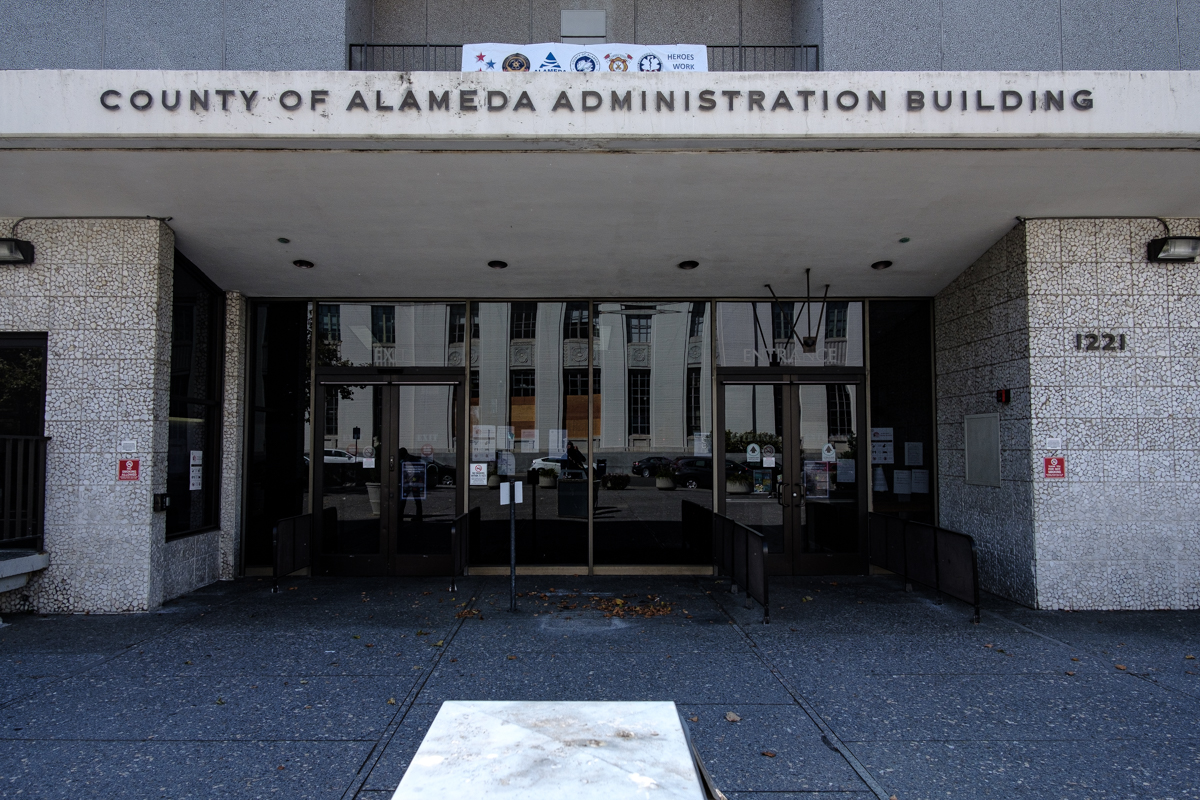The sudden death of Alameda County Supervisor Wilma Chan in November saddened and shocked those who followed her career as a fierce advocate for underserved residents. Chan was a beloved figure among many of her constituents in District 3, the supervisor seat she held since 2011, and also in the 1990s before she joined the state legislature.
After winning the 2018 election unopposed, she was up for re-election this year but was killed by a motorist while walking her dog near Crown Memorial State Beach in Alameda. There are four candidates running to fill her shoes as the representative on the Board of Supervisors.
June 7 primary election — full coverage
Read our coverage to find out who’s running, what measures are on the ballot, how the primary election works, how to register to vote, and more.
Chan, who also was elected to the Oakland school board and state Assembly, focused on issues related to poverty, eliminating food insecurity in Alameda County, and keeping San Leandro Hospital afloat.
The June 7 primary election is approaching, and early voting begins in less than a month. The Oaklandside is providing an overview of the role of a county supervisor and the important services supervisors oversee, as well as information on which Oakland residents will vote in the upcoming election.
We will be reporting more about the four candidates running for supervisor in the coming weeks and also have guides on the district attorney, county superintendent, and sheriff races.
What does a supervisor do?
While unincorporated areas of Alameda County—those without their own city government, like Castro Valley and Cherryland—rely more heavily on county services and their county representatives, the decisions made by the Board of Supervisors affect important services Oakland residents use every day.
Each year, Alameda County spends about $3.1 billion on services, many of them helping the county’s most vulnerable residents. For instance, the county provides health care and runs hospitals, operates the county jail, and runs social services for children and adults and unsheltered people. Federal and state funding for mandated programs is administered by the county. As the county’s governing body, the Board of Supervisors provides policy direction to the county administrator and approves the county budget.
The supervisors have the power to create special boards and commissions and oversee special water, transportation, sanitation, and health care districts. They appoint key non-elected positions, such as the Alameda County health officer, whom the board worked closely with during the coronavirus pandemic to set local orders on quarantines and mask requirements.
Oakland, the county’s seat—meaning where the county’s administration is headquartered—traditionally has had three county supervisors representing different areas of the city. During the redistricting process that followed the release of the 2020 census, the Board of Supervisors resisted an option to reduce the number of representatives in Oakland to two, with some supervisors saying the city’s residents account for a large share of residents who use and benefit from county services.
Unlike in Oakland, where a citizen commission sets new district boundaries, the Board of Supervisors has the final say on the supervisor district maps.
Which Oakland residents are voting in June?
Only a certain number of Oakland residents can expect to find voter material about the District 3 race. The two other supervisorial districts that represent Oakland had elections in 2020.
Residents who live in West Oakland, downtown, North Oakland, Adams Point, Dimond, and Trestle Glen are in District 5, currently represented by Keith Carson.
The East Oakland hills, Maxwell Park, and areas of East Oakland from roughly Seminary Boulevard to the San Leandro border are in District 4 and represented by Nate Miley.
Both Carson and Miley were re-elected in 2020 for another four-year term.
The June 7 election centers on District 3, a seat Chan held since 2011. Oakland residents who will vote in the primary include residents of Jack London Square, Chinatown, parts of downtown, and East Oakland neighborhoods from Eastlake to Fruitvale and ending at Seminary Avenue.
All of Alameda, San Leandro, and San Lorenzo make up the remainder of the district, which is home to nearly 340,000 residents. An interactive map of the district boundaries can be found here.
Who’s running?
After Chan’s death, the Board of Supervisors appointed her aide, Dave Brown, as the District 3 representative. At the time of his appointment, Brown said he had no intention of running for the seat in June and would not have been eligible to be on the ballot because candidates are required to live in the districts they are running to represent for at least a year.
Brown, a longtime Walnut Creek resident, moved into a residence in District 3 shortly before the controversial appointment, which is now the subject of a lawsuit filed by the Alameda County Taxpayers’ Association. The lawsuit seeks to remove him from the seat.
The four candidates running for the seat are spread throughout the district in Alameda, Oakland, and San Leandro. They are Surlene Grant, David Kakishiba, Rebecca Kaplan, and Lena Tam.
Grant is a former San Leandro councilmember and vice mayor who spent a decade on City Council from 1998 to 2008. Grant, who has a background in communications and transportation, has worked as chair of the Housing Authority of Alameda County and served on several city and regional boards. San Leandro named a city community room after Grant to honor her as the city’s first Black councilmember.


Kakishiba, an Oakland resident, is a longtime children’s advocate who has served as the executive director of the East Bay Asian Youth Center, a nonprofit organization serving Oakland youth, for 42 years. He served 12 years on the Oakland Unified school board, including five as president of the board.


Kaplan is Oakland’s at-large city councilmember, meaning she represents the city as a whole as opposed to a particular district. She was first elected to Oakland City Council in 2008, has run twice for mayor, and has served on the regional transportation and air quality boards as well as the Coliseum joint powers authority, which includes councilmembers and county supervisors. Prior to joining the council, Kaplan was the at-large representative on the AC Transit Board of Directors.
Tam, a former Alameda councilmember, has also served as president of the city of Alameda Health Care Board and chair of the Alameda County Planning Board. She is a manager of the East Bay Municipal Utility District’s water planning department.
If none of the candidates receives over 50% of the vote in June, a runoff election between the top two will be held in November. If Kaplan were to win, Oakland would need to hold a special election for her at-large council seat.

